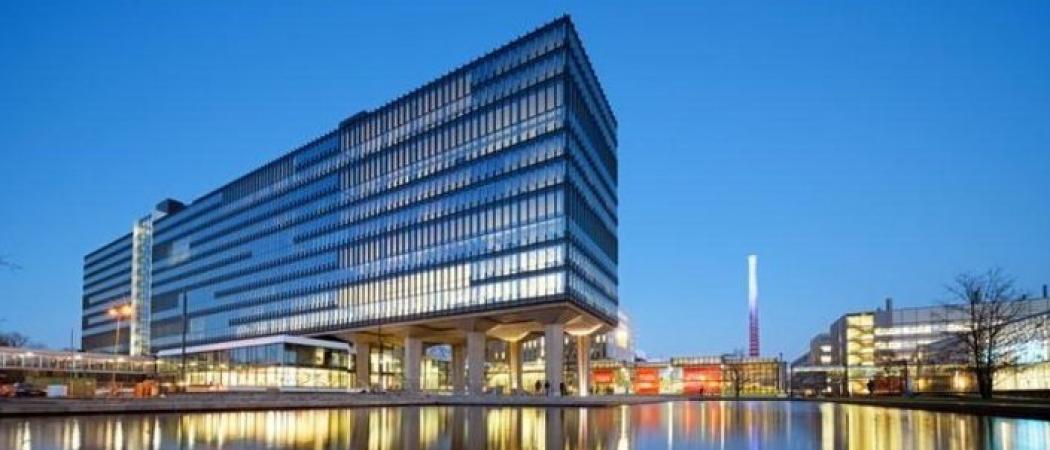Dutch university – bottom of the league on gender equality in the Netherlands – is making a bold move to deal with the imbalance. “I hope our example will be followed by others,” says university president Robert-Jan Smits

TU Eindhoven campus
Job vacancies at the Eindhoven University of Technology will be open exclusively to female candidates for at least the next 18 months in order to overcome a sharp gender imbalance among academic staff.
A new programme, the Irène Curie Fellowship – named after Marie Curie’s daughter – will appoint only female professors, associate and assistant professors, the university announced this week.
About 150 jobs are expected to become vacant during the next five years and each new female employee will be given a special starter package of €100,000 to be spent on mentoring and research.
“We needed to do this because we are bottom of the list on university gender equality in the Netherlands,” said Eindhoven president Robert-Jan Smits.
Currently only 16 per cent of full professors, 15 per cent of associate professors and 29 per cent of assistant professors at Eindhoven are women. The new target for women associate professors and full professors is at least 35 per cent.
“If you see you’re not making any progress on gender equality, you need to take a bold measure. In a modern country, you can’t have a situation where there is no gender democracy in your workplace, or not enough female talent,” Smits said. “I hope our example will be followed by other universities.”
If a vacancy fails to attract suitable female candidates within six months, it will be opened up to men, and after 18 months, the entire scheme will be reviewed.
Exceptions are possible when a department has a male candidate of exceptional quality for a vacancy where there is a need to make a speed appointment, the university said. Such exceptions are permitted for a maximum of 10 per cent of vacancies per department.
The university says its new target recruitment, enforced from July 1, is permitted in European legislation for “underrepresented groups”.
Women are more likely than men to hold back from applying for certain jobs, Smits said. European Commission figures reveal that while there are more female R&D graduates in Europe than ever, women remain under-represented in top academic posts. Women also earn on average 17 per cent less than male colleagues in the EU 28 countries, and this gap widens with age.
“If you have a job posting with five criteria for candidates to match, a woman won’t apply if she only matches four out of the five attributes. A man will apply even if he only matches three out of the five criteria,” Smits said. “Men tend to be over-confident, women under-confident when it comes to applying for jobs.”
Smits says that the new policy is already promoting a new set of habits and instincts among staff.
“Our dean of physics, for example, by being forced to go this extra mile, has identified seven top women for 10 vacancies,” Smits said.
Eindhoven chose Irène Curie as the name for its scheme because not many people knew about her contribution, said Smits.
“She was famous in her own right,” he said. “She was a Nobel Prize winner for Chemistry, like her mother, and a fierce advocate for women’s rights in education and science.”

 A unique international forum for public research organisations and companies to connect their external engagement with strategic interests around their R&D system.
A unique international forum for public research organisations and companies to connect their external engagement with strategic interests around their R&D system.